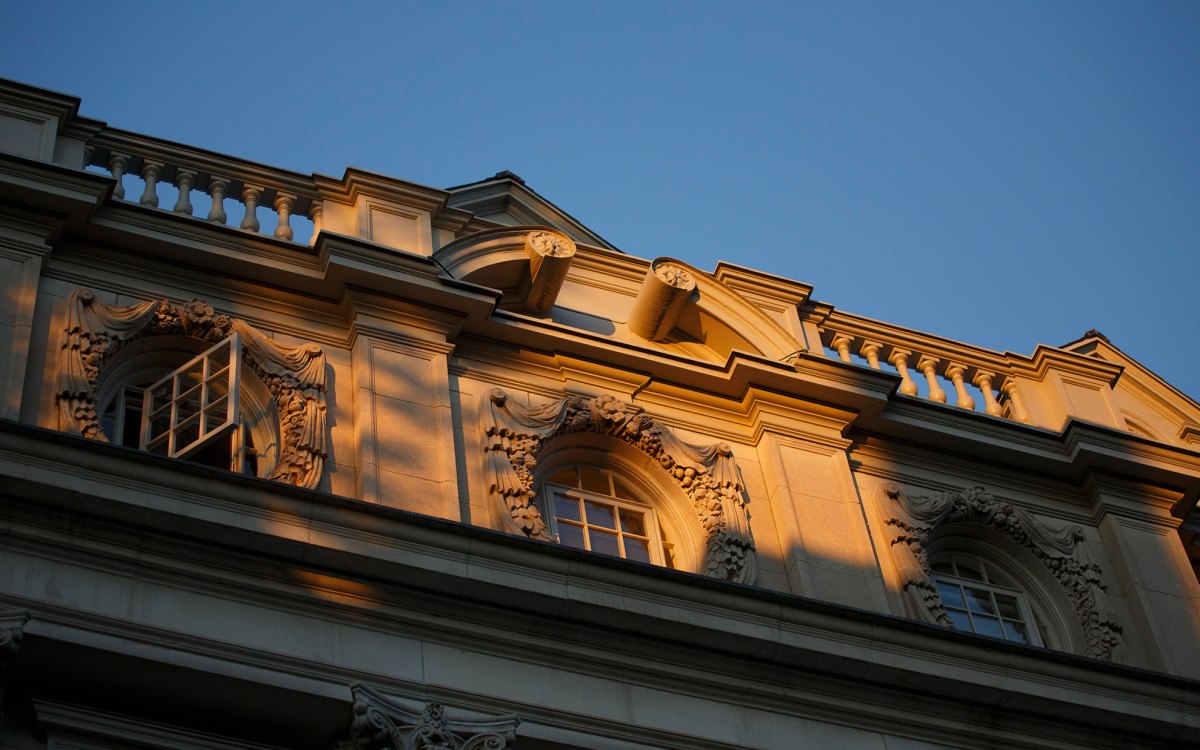This month in Harvard history
Sept. 19, 1639 – Accused of neglecting and physically mistreating students, Nathaniel Eaton is fined and discharged as Master of the College by the Great and General Court of Massachusetts Bay Colony. Harvard closes its doors and dismisses students after little more than a year’s operation.
Sept. 1653 – Backed by English-based President and Society for Propagation of the Gospel in New England, the Commissioners of the United Colonies authorize the College to construct a building for the instruction of “six hopfull Indians youthes.” This “Indian College” is completed ca. 1656, probably on land abutting the inner side of present-day Matthews Hall.
Sept. 24, 1653 – The Great and General Court of Massachusetts Bay Colony appoints a committee to “examine the state of the colledge,” paying special attention to providing more abundant food for students.
Sept. 9, 1766 – Disgruntled over the “bad and unwholesome Butter” served with meals, students launch the Great Butter Rebellion of 1766, the College’s earliest recorded uprising. “Behold our Butter stinketh!” declares a biblical-style satire by Asa Dunbar, Class of 1767 (grandfather of Henry David Thoreau).
– From the Harvard Historical Calendar, a database compiled by Marvin Hightower




